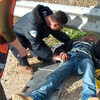
In recent months, B’Tselem has collected many testimonies from Palestinians in the West Bank about abuse by soldiers. A significant number of the testimonies dealt with events that took place in the area referred to as the Ramin Plain. The area has a dirt road that Palestinians use to avoid the checkpoint near the Einav settlement. Recently, the IDF imposed harsh restrictions on the movement of Palestinians in the northwest part of the West Bank. In their testimonies to B’Tselem, the Palestinians described how the soldiers ambushed them on the dirt road along the Ramin Plain, beat and abused them for hours, and damaged their vehicles. Read more about Beatings and abuse on the Ramin Plain, Summer 2006
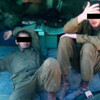
Today, the Judge Advocate General’s Office filed an indictment against two soldiers from the Haruv Battalion who had abused Palestinians in Nablus District last month. The soldiers were charged with assault in aggravated circumstances and unbecoming conduct. Recently, B’Tselem uncovered that, in August, a group of soldiers from the battalion had maltreated two Palestinians near a-Naqora, a village in Nablus District. The two filed complaints and turned to B’Tselem. B’Tselem wrote to the Judge Advocate General’s Office and demanded that the matter be investigated. Read more about B'Tselem's investigation leads to indictment of soldiers who abused Palestinians
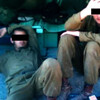
On 26 August 2006, soldiers detained Tha’ir Muhsen, 18, from a-Neqora, a village near Nablus , while he was on his way home after registering at a-Najah University , in Nablus. The soldiers sat him down next to another Palestinian who had been detained. The other fellow told Muhsen that the soldiers had beaten him. When one of the soldiers threw a stick to another soldier present, the other detainee fled. The soldiers chased him but returned empty- handed. They then began to abuse Muhsen. Read more about Soldiers severely abuse young Palestinian and take a picture of themselves on his cell phone
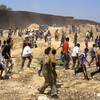
On 30 August 2006, B’Tselem wrote to the Defense Minister, Amir Peretz, and informed him there was reason to believe that the security establishment has been using the Rafah crossing to put pressure on Palestinians in the Gaza Strip. The organization demanded that the minister order the IDF to cease its illegal policy. B’Tselem’s action followed publication of the minutes of a meeting held in the Ministry of Defense relating to the Gaza crossings, as reported in Ha’aretz. According to the report, the IDF’s Planning Division argued that the crossing “should be opened on occasion only after the kidnapped soldier is released and the shooting from the Gaza Strip stops. (To use the crossing as a means of applying pressure).” Read more about Stop using Rafah Crossing to pressure Gaza civilians
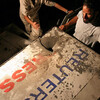
On Sunday [27 August], the Israeli air force fired at a Reuter press vehicle near the Shaja’iyah neighborhood in Gaza. Two journalists in the vehicle were injured, one of them severely. An IDF spokesperson stated that the vehicle was attacked during an IDF operation because the vehicle “was driving suspiciously near IDF forces operating in the area.” The spokesperson contended that the soldiers did not identify the vehicle as one that belonged to the press agency, and regretted that the journalists were injured. According to Reuters, and from photos that appeared in the media, the vehicle was clearly marked as a press vehicle on all sides and on its roof. Read more about B'Tselem demands Military Police investigation of firing at journalists in Gaza
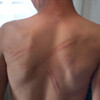
According to B’Tselem’s research, since the beginning of Operation Summer Rains in the Gaza Strip, on 28 June 2006, there has been a substantial increase in cases in which Israeli soldiers and Border Police in the West Bank beat, abuse, and humiliate Palestinians. The increase in incidents has been particularly evident since the outbreak of the war in Lebanon, on 12 July. Most of the violence and abuse documented by B’Tselem during this eight-week period did not cause severe bodily harm: a few slaps or kicks, curses and threats, and prolonged delays as punishment, for example. However, B’Tselem investigation also includes six particularly serious cases. Read more about Beatings and Abuse in the Shadow of War
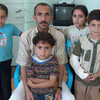
Today, B’Tselem and HaMoked: Center for the Defence of the Individual, are publishing Perpetual Limbo, a report on Israel ‘s policy freezing family unification for Palestinians in the Occupied Territories . Although the policy affects almost every Palestinian family living in the Occupied Territories , it is unknown to the Israeli public. Read more about Israel's freeze of familiy unification in the Occupied Territories splits tens of thousands of Palestinian families
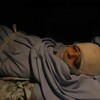
In July, the Israeli military killed 163 Palestinians in the Gaza Strip, 78 of whom (48 percent) were not taking part in the hostilities when they were killed. Thirty-six of the fatalities were minors, and 20 were women. In the West Bank, 15 Palestinians were killed by Israeli forces in July. The number of Palestinian fatalities in July was the highest in any month since April 2002. Of the incidents B’Tselem investigated in Gaza over the past month, the organization has identified four cases in which Israel may have committed grave breaches of the laws of war. A total of 15 Palestinian civilians were killed in these incidents, including 7 minors. Read more about Almost half the fatalities in Gaza in July were civilians
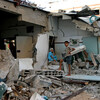
B’Tselem’s initial investigation indicates that, during an incursion by Israeli forces into Beit Hanun, in the northern Gaza Strip, on 17 July 2006, soldiers seized control of two buildings in the town and used residents as human shield. After seizing control of the buildings, the soldiers held six residents, two of them minors, on the staircases of the two buildings, at the entrance to rooms in which the soldiers positioned themselves, for some twelve hours. During this time, there were intense exchanges of gunfire between the soldiers and armed Palestinians. Read more about Israeli soldiers use civilians as human shields in Beit Hanun
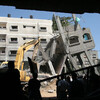
On July 11, 2006, six human rights groups petitioned the Israeli High Court demanding that the crossings in Gaza be opened to allow for the steady and regular supply of fuel, food, medicine, and equipment, including spare parts needed to operate generators. The groups also asked for an urgent hearing in order to prevent serious harm to the health of the civilian population, especially patients in hospital, and to prevent the breakdown of the water and sewage system in Gaza. Read more about Six human rights groups to Israeli High Court: Stop the harm to the civilian population in Gaza









